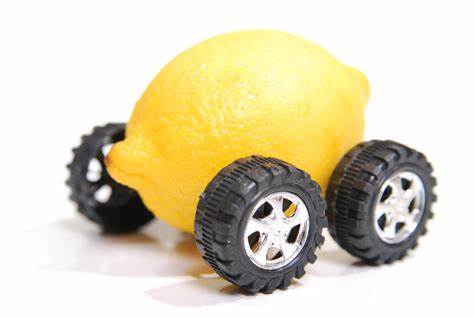7 Most Common Misconceptions About Lemon Law That Apply Only To Brand New Vehicles In San Diego

The Lemon Law, designed to protect consumers from defective vehicles, is often shrouded in mystery and misconception, particularly when it comes to brand new vehicles. Here are seven of the most common misconceptions, debunked to provide clarity and help consumers navigate this often-confusing law.
- Lemon Law doesn’t solely cover major issues; it encompasses any defect or condition that significantly impairs the use, value, or safety of the vehicle. This could include persistent minor problems that the manufacturer or authorized dealer has been unable to fix after reasonable attempts.
- Even if the warranty has expired, the Lemon Law can still apply, provided the problems started within the warranty period and have persisted despite reasonable attempts to repair them.
- Lemon Laws usually require a reasonable number of repair attempts before the vehicle can be classified as a “lemon”. What’s considered reasonable can vary by state, but typically, it’s more than one attempt.
- Generally, a vehicle must meet specific criteria, like multiple unsuccessful repair attempts or being out of service for a specific number of days within a certain period, to qualify under the Lemon Law.
- Many people believe that the Lemon Law only applies to purchased new cars. However, in most states, leased new vehicles are also covered under the Lemon Law, offering the same consumer protections.
- Lemon Law obligations typically fall on the manufacturer rather than the dealership. It’s the manufacturer’s responsibility to correct the defect, replace, or repurchase the vehicle.
- Lemon Law extends beyond conventional automobiles. In many states, it applies to new motorcycles, recreational vehicles (RVs), and even some types of boats, granting the same protections.
FAQs
How Long Does Lemon Law Apply After The Purchase Of A New Vehicle?
This varies by state, but usually, Lemon Law applies for a certain period after the purchase or until the vehicle has accrued a specific number of miles.
What If My Vehicle Is A Lemon But The Manufacturer Refuses To Comply?
If your vehicle meets your state’s lemon law criteria and the manufacturer refuses to comply, you should consult with an attorney specializing in lemon law cases to help assert your rights.
Can I Claim Under Lemon Law If I Purchased My Vehicle In Another State?
Generally, the Lemon Law of the state where the vehicle was purchased applies. However, certain conditions may allow you to claim under your residing state’s law.
Conclusion
Understanding the Lemon Law can help you protect your investment in a new vehicle and ensure your rights as a consumer. Contrary to popular belief, the Lemon Law does not just apply to serious issues, nor is it limited only to brand new, purchased vehicles. By dispelling these common misconceptions, we hope to empower consumers with the knowledge to navigate the complexities of the Lemon Law and its application to new vehicles.
At Scott Law Group P.C. We have years of expertise assisting individuals in pursuing lemon law claims for compensation. We provide a free consultation so that you may determine whether or not you have a case, and we only get paid if we are successful in representing you in that matter. For further information, please get in touch with us right away at (619) 345-5599.
If you need a professional lemon lawyer for your case, contact us right away!
(619) 345-5599
Our Services
California Lemon Law
FAQs
Leased Vehicles
Lemon Law Explained
Used Vehicles
Motorcycles
RVs And Motor Homes
Reasonable Number Of Repairs
